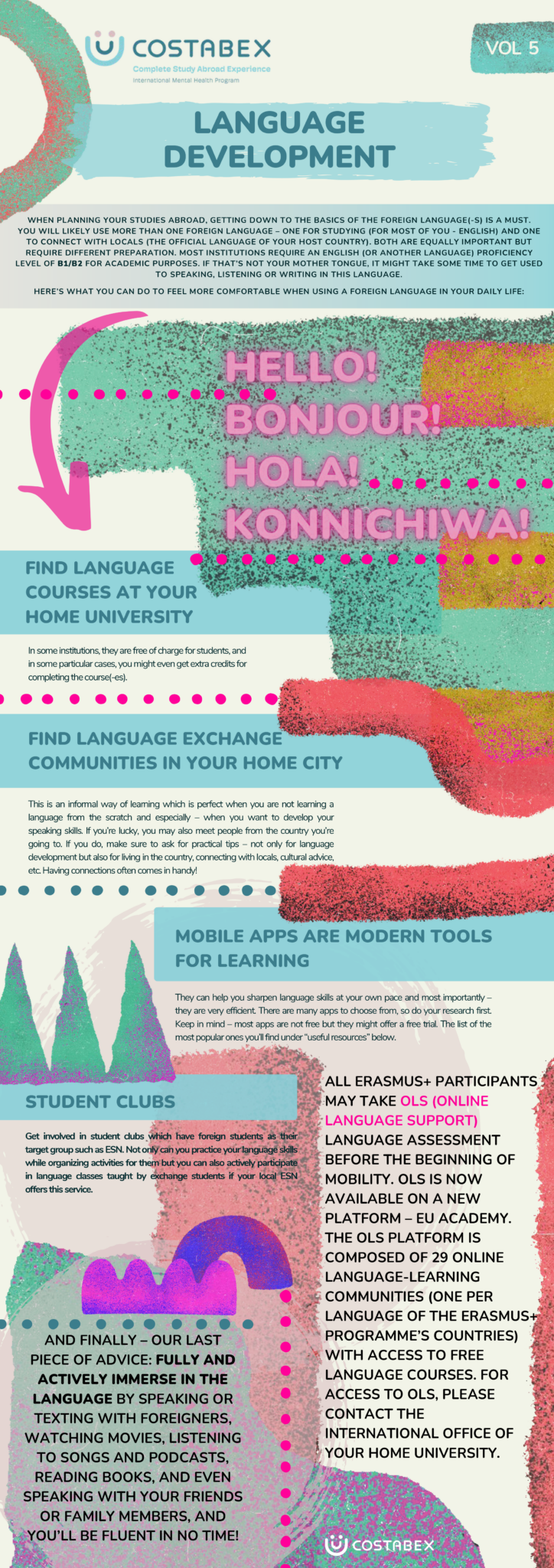Hello! Bonjour! Hola! Konnichiwa!
When planning your studies abroad, getting down to the basics of the foreign language(-s) is a must.
You will likely use more than one foreign language – one for studying (for most of you – English) and one to connect with locals (the official language of your host country). Both are equally important but require different preparation.
Most institutions require an English (or another language) proficiency level of B1/B2 for academic purposes. If that’s not your mother tongue, it might take some time to get used to speaking, listening or writing in this language.
Here’s what you can do to feel more comfortable when using a foreign language in your daily life.
Find language courses at your home university. In some institutions, they are free of charge for students, and in some particular cases, you might even get extra credits for completing the course(-es).
Find language exchange communities in your Home city. This is an informal way of learning which is perfect when you are not learning a language from the scratch and especially – when you want to develop your speaking skills. If you’re lucky, you may also meet people from the country you’re going to. If you do, make sure to ask for practical tips – not only for language development but also for living in the country, connecting with locals, cultural advice, etc. Having connections often comes in handy!
Mobile apps are modern tools for learning. They can help you sharpen language skills at your own pace and most importantly – they are very efficient. There are many apps to choose from, so do your research first. Keep in mind – most apps are not free but they might offer a free trial. The list of the most popular ones you’ll find under “useful resources” below.
Student clubs. Get involved in student clubs which have foreign students as their target group such as ESN. Not only can you practice your language skills while organizing activities for them but you can also actively participate in language classes taught by exchange students if your local ESN offers this service.
All Erasmus+ participants should take OLS (Online Language Support) language assessment before the beginning of mobility. OLS is now available on a new platform – EU Academy. The OLS platform is composed of 29 online language-learning communities (one per language of the Erasmus+ Programme’s countries) with access to free language courses. For access to OLS, please contact the International Office of your Home university.
And finally – our last piece of advice: fully and actively immerse in the language by speaking or texting with foreigners, watching movies, listening to songs and podcasts, reading books, and even speaking with your friends or family members, and you’ll be fluent in no time!
Useful resources:
Duolingo https://www.duolingo.com/
Babbel https://www.babbel.com/
Rosetta Stone https://www.rosettastone.com/
Memrise https://www.memrise.com/
HelloTalk https://www.hellotalk.com/

